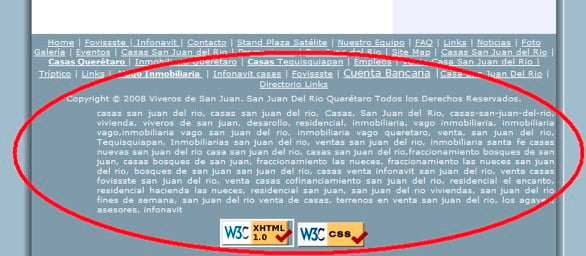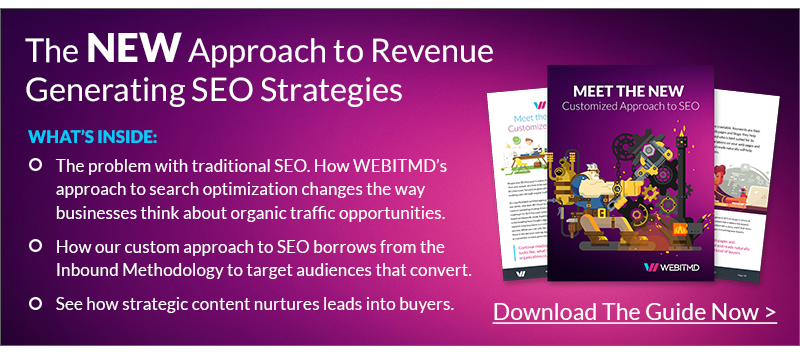Search Engine Optimization Defined
When we say “search engine”, let’s be honest here, we mean Google. 75% of the searches in the U.S. are done using Google’s search engine, and that number is closer to 100% in many countries. If you’re looking for your webpage to rank in China or South Korea, where the internet is regulated by the government, then you are dealing with an entirely different animal, and should consult with an expert in that area. For the vast majority however, a “Google-centric” approach is best when talking SEO.
Now let’s break down “optimization”. According to Merriam-Webster, optimization is simply “the process of making a system as effective as possible”. Now here’s where it gets tricky. There are two completely different perspectives when defining what “effective” means.
The Searcher – How Google Defines Optimized Searches
 Today, it’s easy to see Google as the enemy. Ranking highly on search results can be the difference between success and failure for businesses that rely on this type of exposure. It can be daunting, and seem down-right unfair, when your business is buried behind 10 pages of search results. But we have to remember that when Sergey Brin and Lawrence “Larry” Page first began designing Google at Stanford in 1996, their intentions focused around one key idea: “to crawl and index the Web efficiently and produce much more satisfying search results than existing systems”. Basically, they wanted to create a search engine that was optimized with the searcher in mind, and that’s exactly what they did. In 1998, PC Magazine wrote that Google had “an uncanny knack for returning extremely relevant results”. The idea of relevancy is still what drives Google’s search results today, and it’s what is optimized for on Google’s end. We’ll talk a bit later about how Google decides what pages are relevant today. A lot has changed since 1996.
Today, it’s easy to see Google as the enemy. Ranking highly on search results can be the difference between success and failure for businesses that rely on this type of exposure. It can be daunting, and seem down-right unfair, when your business is buried behind 10 pages of search results. But we have to remember that when Sergey Brin and Lawrence “Larry” Page first began designing Google at Stanford in 1996, their intentions focused around one key idea: “to crawl and index the Web efficiently and produce much more satisfying search results than existing systems”. Basically, they wanted to create a search engine that was optimized with the searcher in mind, and that’s exactly what they did. In 1998, PC Magazine wrote that Google had “an uncanny knack for returning extremely relevant results”. The idea of relevancy is still what drives Google’s search results today, and it’s what is optimized for on Google’s end. We’ll talk a bit later about how Google decides what pages are relevant today. A lot has changed since 1996.
The Searched – How Website Stakeholders Define Optimization
 The first goal for website owners or stakeholders is to get search traffic to their site. Of course, depending on your industry and objectives, goals once a user is there can vary. But for the sake of simplification, let’s identify the main objective as simply to get traffic to the site. Of course, there are advertising opportunities through Paid Search, or “Pay-Per-Click” ads, but for this discussion, we are focusing on organic search results. That is, the results that Google decides are the most relevant to a given search phrase. So, from a stakeholders point of view, “search engine optimization” can be simplified as creating a system that effectively drives traffic to a site through an organic Google search. This system consists of a combination of extremely technical aspects of web design, the actual content itself, and how that content is seen on various channels outside of the main URL.
The first goal for website owners or stakeholders is to get search traffic to their site. Of course, depending on your industry and objectives, goals once a user is there can vary. But for the sake of simplification, let’s identify the main objective as simply to get traffic to the site. Of course, there are advertising opportunities through Paid Search, or “Pay-Per-Click” ads, but for this discussion, we are focusing on organic search results. That is, the results that Google decides are the most relevant to a given search phrase. So, from a stakeholders point of view, “search engine optimization” can be simplified as creating a system that effectively drives traffic to a site through an organic Google search. This system consists of a combination of extremely technical aspects of web design, the actual content itself, and how that content is seen on various channels outside of the main URL.
How Does Google Decide What’s Relevant?
First, let’s talk about what used to work. Before Google, search engines like Aliweb, Infoseek , AltaVista, and my personal favorite, DogPile, could be very easily fooled into ranking pages based on the appearance of keywords within a page. The practice of “keyword stuffing” and “hidden text” became a necessary norm. Page ranking is a zero-sum game; if you didn’t play using keywords, then someone else would, and you would be ousted from top results regardless of your site’s true relevancy to a search phrase. You may remember seeing pages that looked like these in the past:
If this looks at all similar to any of your own content, then run, do not walk, to your computer and get it out of there immediately. It will hurt your page ranking by earning you a Google penalty. The same goes for creating “spammy” links. In 2012 Google’s Penguin algorithm was released, and it completely changed the SEO game by penalizing “manipulative backlinks”. The exact way the algorithm works is unknown, and Google has every reason to keep it a secret given that every SEO agency and DIY optimizer would try to find a way to work around it, which is still happening of course, but Google knows good and well not to make it any easier. The official word from Google is that links that do not originate from high-quality, original, and relevant content will result in Google’s Penguin algorithm seeing it as spam, and spam is the dirtiest of four-letter words at Google.
So…What do I DO?
 Your homework. Google has a plethora of information about what’s needed technically for each page, as well as what content you should be producing if you want to be seen as a reliable, relevant, authoritative source in your industry. Read Google’s Webmaster Guidelines and Steps to a Google-friendly Site. Once you’ve done all that you can do on your own, find a reliable SEO agency to build a long-term digital marketing strategy. SEO is not a one-shot and done business anymore. Search engine results are dynamic, and algorithm updates can come out of nowhere. To be successful, you need to stay one step ahead of your competition. Remember, there are only 10 spots on page one, and it takes continual hard work to get there…and stay there.
Your homework. Google has a plethora of information about what’s needed technically for each page, as well as what content you should be producing if you want to be seen as a reliable, relevant, authoritative source in your industry. Read Google’s Webmaster Guidelines and Steps to a Google-friendly Site. Once you’ve done all that you can do on your own, find a reliable SEO agency to build a long-term digital marketing strategy. SEO is not a one-shot and done business anymore. Search engine results are dynamic, and algorithm updates can come out of nowhere. To be successful, you need to stay one step ahead of your competition. Remember, there are only 10 spots on page one, and it takes continual hard work to get there…and stay there.







.jpg)



.jpg)





![5 Reports to Elevate Your HubSpot Sales Dashboard [+ Examples]](https://blog.webitmd.com/hs-fs/hubfs/Imported_Blog_Media/6-winning-examples-of-a-hubspot-sales-dashboard-2.png?width=767&name=6-winning-examples-of-a-hubspot-sales-dashboard-2.png)